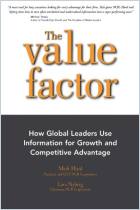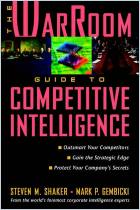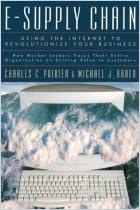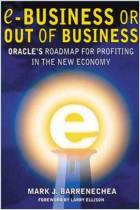Join getAbstract to access the summary!

Join getAbstract to access the summary!
Bernard Liautaud and Mark Hammond
E-Business Intelligence
Turning Information into Knowledge into Profit
McGraw-Hill, 2001
What's inside?
Dictatorships hoard information that employees need. Information anarchy results in chaos. But information democracy keeps everyone informed and participatory — and, you’ll be relieved to hear, election campaigns are not required.
Recommendation
Despite the stereotype of the great company run by a mercurial, charismatic dictator in the Steve Jobs mode, a number of cutting edge business thinkers argue that if you want your company to grow, you should introduce democracy into the management mix. One of those thinkers is author Bernard Liautaud, who, unlike most folks who theorize about business, actually owns a company, and a fairly significant one at that. His European software company, Business Objects, has annual revenues of more than $240 million. In his book, he explains why democracy is good for business. Companies that adopt his ideas, he says, will realize numerous advantages, including better communication between the company and the customer, more intelligent data about who buys products and why, and the discovery that you can sell data back to your customer. getabstract welcomes this fascinating report from the horse’s mouth about the growth and evolution of the democratic, intelligent, e-organization.
Summary
About the Authors
Bernard Liautaud is president, co-founder and CEO of Business Objects, a provider of e-business intelligence solutions. Liautaud was named one of the "Hottest Entrepreneurs of the Year" by BusinessWeek in 1996. In fewer than 10 years, he built Business Objects into a global corporation with more than 10,000 customers and more than $240 million in annual revenue. Business Objects was the first European software company to go public on NASDAQ. It is also included in Intelligent Enterprise ’s January 2000 list of "12 Most Influential Companies in the Information Technology Industry." Mark Hammond is a freelance writer based in San Francisco. A lifelong journalist, Hammond covered the business intelligence, data warehousing and database industries for PC Week magazine after a dozen years as an award-winning reporter for daily newspapers in New York.


















Comment on this summary